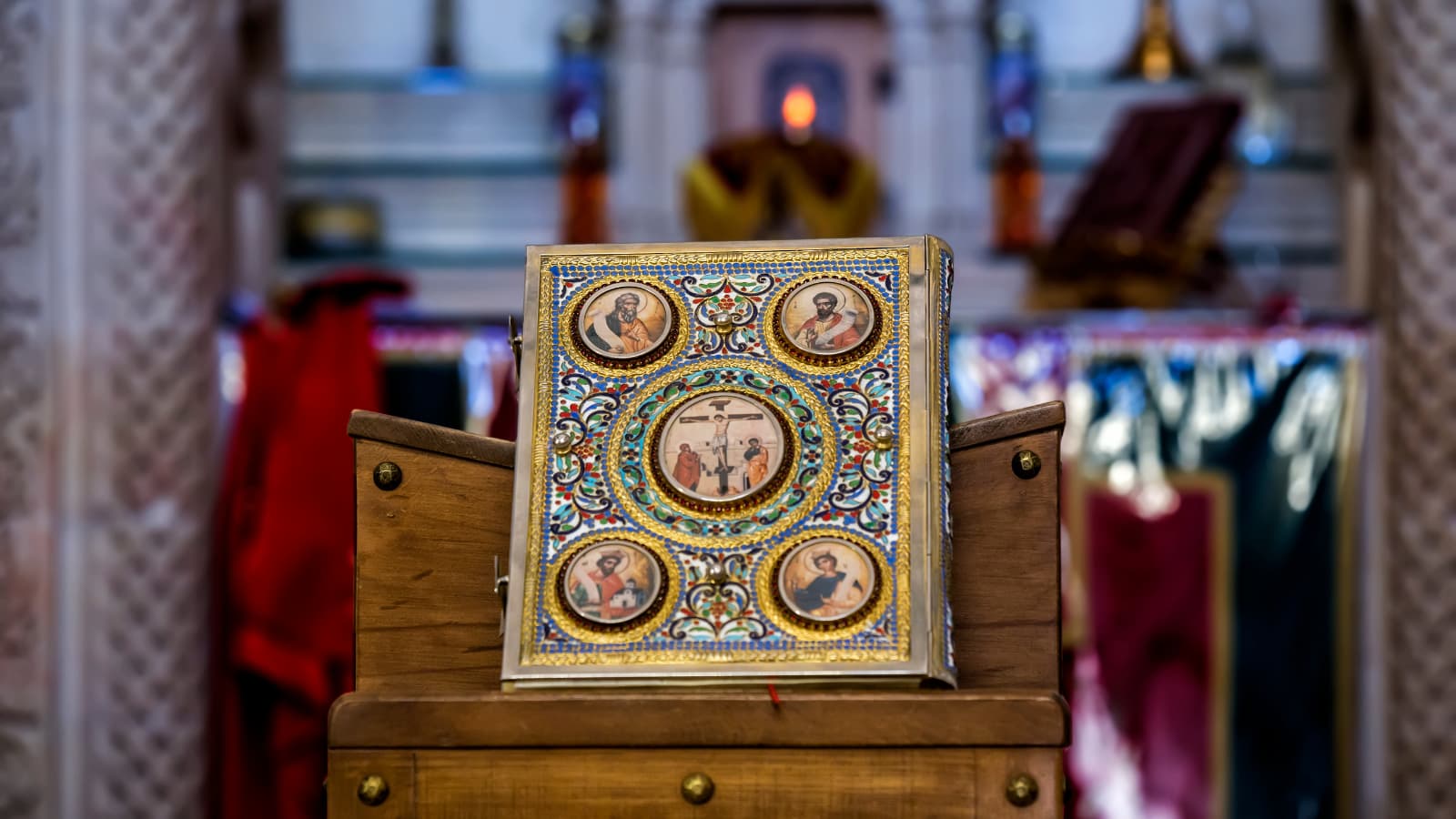Orthodox Christianity stands as a vibrant testament to the Christian Faith’s deep historical roots and rich theology. As the One, Holy, Catholic, and Apostolic Church, it has maintained a distinctive approach to understanding and interpreting divine truth. Central to this approach is the intricate relationship between Scripture and Holy Tradition. For Orthodox Christians, these two pillars are not merely components of the Faith. Indeed, they form the very foundation of the spiritual life. This dynamic interplay shapes Orthodox theology, informs our worship, and guides our moral and ethical decisions, offering a wellspring of wisdom and continuity that transcends time and cultural shifts. Understanding how these elements work together is crucial for anyone seeking to grasp the essence of Orthodox belief and practice.
5 minutes
The importance of Scripture
In Orthodox Christianity, we regard Holy Scripture as the divinely inspired Word of God. The canon of Scripture in the Orthodox tradition includes texts found in the Septuagint (the Greek translation of the Hebrew Scriptures) that Protestant Christians consider as “apocrypha“, such as 1 and 2 Maccabees, Wisdom of Solomon, and additional psalms.
Related: What Bible Do Orthodox Christians Use?
The Church teaches that the Bible is not merely a historical record or a set of moral guidelines. Indeed, it is the very revelation of God to humanity. According to our understanding, Scripture is inerrant in its spiritual teachings. In other words, it faithfully communicates God’s truth and establishes the foundation of Christian faith and practice.
Engagement with the Scriptures is integral to living the Orthodox Christian life. The Church actively nourishes the faithful by encouraging them to become intimately familiar with the written Word of God, both through communal and personal study and contemplation. Additionally, every divine service celebrated in the Orthodox Church contains Scripture. We hear the Psalms chanted, listen to readings from the Old Testament, Gospels, and Epistles, and hear references to Scripture in the prayers spoken by the priest. Personal, devotional prayers also contain the psalms and other prayers with Scriptural references interwoven through them.
Interpreting Scripture within Holy Tradition
The interpretation of Scripture is guided by the cumulative wisdom of Holy Tradition. As Orthodox Christians, we believe that the Church, under the guidance of the Holy Spirit, is the guardian and interpreter of Scripture. This means that understanding the Bible goes beyond personal interpretation; it involves the insights of the Church Fathers, ecumenical councils, and centuries of theological reflection.
The connection between Scripture and Holy Tradition is exemplified in the teachings of the early Church Fathers. For example, St. John Chrysostom and St. Basil the Great are both renowned for their exegesis (critical interpretation) of Scripture. Their writings continue to inform Orthodox understanding today, showing how Scripture was interpreted and applied in the historical and cultural contexts of their time.
The role of Holy Tradition
Holy Tradition is the collective term for the teachings and practices that have been transmitted through the Church from generation to generation. In the Church, Holy Tradition is dynamic and living. This means it adapts to the spiritual needs of the faithful throughout history while remaining rooted in the Gospel. Some key elements of Holy Tradition include:
- Liturgical practices.
The Divine Liturgy, sacraments, feast days, and prayers all reflect deep theological truths about Christ and the nature of the Church. - The Teachings of the Church Fathers.
Writings from early Christian theologians offer the faithful valuable insights into doctrine and ethics. We often indirectly reference these texts in liturgical services, as they are a critical source of theological understanding. - Ecumenical Councils.
The Ecumenical Councils played a pivotal role in formalizing doctrines concerning the nature of Christ, the Trinity, and many other theological issues. The decisions made at these councils continue to influence contemporary doctrinal beliefs in the Orthodox Church. - Iconography and Spiritual Practices.
Icons serve both as visual representations of holy people and scriptural events and as windows into heaven. Orthodox Christians venerate icons as part of communal worship and personal devotion. Icons are not mere pictures. Indeed, each icon is a profound theological statement about salvation, the nature of Christ, and the communion of saints.
The Interdependence of Scripture and Tradition
In Orthodox theology, Scripture and Holy Tradition are not seen as separate or opposing sources of authority. Rather, they exist in a symbiotic relationship. Holy Tradition contextualizes and elucidates Scripture, providing the foundational interpretative framework through which the faithful are encouraged to read and understand biblical texts.
This interdependence reflects a core belief that the Holy Spirit continues to work through both Scripture and Tradition, safeguarding the truth of the Gospel for each new generation. The Orthodox Church teaches that the truths revealed in Scripture are alive and transformative, touching the lives of believers in meaningful ways today.
Conclusion
The interplay between Scripture and Holy Tradition is fundamental to the Orthodox Christian Faith. By honoring both the written Word and the living Tradition, we preserve the rich theological heritage of the Church. At the same time, the Faith remains relevant in a rapidly changing world. In this way, Scripture and Tradition are not just components of faith; they are pathways to understanding God’s revelation, guiding the faithful into a closer relationship with Him and one another. Through this balance, we Orthodox Christians find a dynamic spiritual life rooted in the ancient truths of our faith.
Keep Reading: Differences Between the Orthodox and Protestant Faiths

